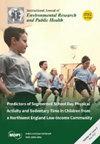遭受性别暴力的难民妇女的性保健和生殖保健需求:在重新安置环境中提供以创伤为基础的护理
3区 综合性期刊
Q1 Medicine
International Journal of Environmental Research and Public Health
Pub Date : 2024-08-08
DOI:10.3390/ijerph21081046
引用次数: 0
摘要
本文评估了有关经历过性别暴力(GBV)的重新安置难民妇女的性与生殖保健(SRH)需求以及性与生殖保健服务提供者采用的创伤知情护理(TIC)原则的文献。通过系统性检索,确定了2000年至2021年间发表的相关研究;但没有发现任何文章同时反映了难民妇女的性健康和生殖健康以及创伤知情护理原则。因此,检索分为两个目的:回顾有关重新安置国中经历过性别暴力的难民妇女的性健康和生殖健康需求的文献(目的1),以及研究在经历过性别暴力的妇女的性健康和生殖健康护理中使用TIC原则的情况(目的2)。文章的主题分析确定了关键主题。共有 26 篇文章被纳入这两个目标的分析(目标 1 = 8 篇,目标 2 = 18 篇)。目标1的文章分享了影响重新安置的难民妇女性健康和生殖健康需求的三个因素:暴力和创伤的中心地位;性健康和生殖健康护理的结构性障碍;以及服务提供者的行动、实践和资源。目标2的文章说明了在提供性健康和生殖健康服务时采用的七项关键性信息和通信技术原则,如赋权;针对创伤的服务和综合护理;联系;安全;协作;认同文化和背景;以及可信赖。重新安置的难民妇女遭受暴力的经历要求提供以创伤为基础的性健康和生殖健康保健服务。虽然有关为难民妇女提供创伤知情同意-性健康和生殖健康护理的同行评审文献有限,但有关难民妇女性健康和生殖健康需求的研究结果以及有关在性健康和生殖健康中实施创伤知情同意的研究结果共同构成了如何将创伤知情同意纳入性健康和生殖健康的建议。难民妇女健康诊所是一个实践范例,它体现了在性别暴力中幸存下来的重新安置难民妇女的健康问题上,"以人为本 "的性健康和生殖健康原则在行动中的示范作用。本文章由计算机程序翻译,如有差异,请以英文原文为准。
Sexual and Reproductive Healthcare Needs of Refugee Women Exposed to Gender-Based Violence: The Case for Trauma-Informed Care in Resettlement Contexts
This paper assesses literature regarding the sexual and reproductive healthcare (SRH) needs of resettled refugee women who experienced gender-based violence (GBV) and trauma-informed care (TIC) principles utilized among SRH service providers. A systematic search identified relevant studies published between 2000 and 2021; no articles found reflected both SRH and TIC principles among refugee women. The search was therefore separated into two aims: to review the literature about SRH needs for refugee women in resettlement countries who experienced GBV (Aim 1) and to examine the use of TIC principles in SRH care among women who experienced GBV (Aim 2). Thematic analysis of the articles identified key themes. Twenty-six articles were included in the analysis across both aims (Aim 1 = 8, Aim 2 = 18). Aim 1 articles shared three factors shaping the SRH needs of resettled refugee women: the centrality of violence and trauma; structural barriers to SRH care; and actions, practices, and resources for service providers. Aim 2 articles illustrated seven key principles of TIC used in SRH service provision, such as empowerment; trauma-specific services and integrated care; connection; safety; collaboration; identity culture and context; and trustworthiness. Resettled refugee women’s experiences of violence necessitate trauma-informed SRH health care. While there is limited peer-reviewed literature regarding TIC-SRH care for refugee women, the findings regarding the SRH needs of refugee women and the findings regarding the implementation of TIC in SRH collectively frame recommendations for how SRH can be infused with TIC. An example from practice, in the form of the Refugee Women’s Health Clinic, is included as an exemplar of TIC SRH principles in action for the health of resettled refugee women who have survived gendered violence.
求助全文
通过发布文献求助,成功后即可免费获取论文全文。
去求助
来源期刊

International Journal of Environmental Research and Public Health
Medicine-Public Health, Environmental and Occupational Health
CiteScore
7.30
自引率
0.00%
发文量
14422
审稿时长
1 months
期刊介绍:
International Journal of Environmental Research and Public Health (IJERPH) (ISSN 1660-4601) is a peer-reviewed scientific journal that publishes original articles, critical reviews, research notes, and short communications in the interdisciplinary area of environmental health sciences and public health. It links several scientific disciplines including biology, biochemistry, biotechnology, cellular and molecular biology, chemistry, computer science, ecology, engineering, epidemiology, genetics, immunology, microbiology, oncology, pathology, pharmacology, and toxicology, in an integrated fashion, to address critical issues related to environmental quality and public health. Therefore, IJERPH focuses on the publication of scientific and technical information on the impacts of natural phenomena and anthropogenic factors on the quality of our environment, the interrelationships between environmental health and the quality of life, as well as the socio-cultural, political, economic, and legal considerations related to environmental stewardship and public health.
The 2018 IJERPH Outstanding Reviewer Award has been launched! This award acknowledge those who have generously dedicated their time to review manuscripts submitted to IJERPH. See full details at http://www.mdpi.com/journal/ijerph/awards.
 求助内容:
求助内容: 应助结果提醒方式:
应助结果提醒方式:


